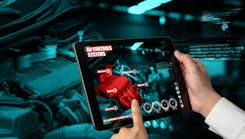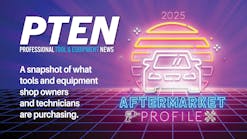WVU Center develops electric drive and alternative fuel vehicle smartphone application and training program
Despite their demonstrated safety and efficiency, some of the new electric drive and alternative fuel vehicles that are becoming more common on American highways will inevitably be involved in highway accidents. When first responders are called to help, thanks to experts at a West Virginia University center – there’s an app for that, as well as full-blown training programs.
The WVU-based National Alternative Fuels Training Consortium (NAFTC) has created a suite of modern technology products that put knowledge about specific electric drive and alternative fuel vehicles at the fingertips of the nation’s first responders.
With one million electric drive vehicles expected to be on the road by 2015, in addition to the hundreds of thousands of alternative fuel vehicles, more and more consumers see electric drive and alternative fuel vehicles as viable alternatives to conventional cars and trucks, according to NAFTC Executive Director Al Ebron.
“Electric drive and alternative fuel vehicles are an important part of the future of transportation because they reduce our nation’s dependence on foreign oil and keep our air cleaner,” Ebron said. “Because more consumers are choosing electric drive or alternative fuel vehicles, first responders must understand the differences between these and conventional, gasoline-powered vehicles. Electric drive and alternative fuel vehicles are as safe as conventional vehicles, but they are different. The First Responder Safety Training provides first responders with important information to enhance their understanding of those differences.”
The NAFTC developed the smart phone app – known in the iPhone App Store as “QRG,” which stands for quick reference guide – for first responders who need to access information about electric drive and alternative fuel vehicles at accident scenes. The app contains information on electric drive vehicles such as hybrid, plug-in hybrid, battery and fuel cell electric vehicles as well as vehicles powered by alternative fuels like biodiesel, ethanol, natural gas, propane and hydrogen.
Ebron said the QRG app, which is free, provides detailed, vehicle-specific information including identification mechanisms, disconnect procedures and other special concerns.
A hard copy version of the QRG also is available as a durable flipbook for emergency personnel to use at the scene of an accident. It details various makes and models of electric drive and alternative fuel vehicles, alerting first responders to such items as high-voltage cables and cut zones. This version of the QRG is available for a nominal cost.
The app can be used on both the iPhone and the iPad and will be available for Android devices soon. But, the app is only a part of the overall NAFTC effort that is making headlines across the nation as part of its First Responder Safety Training, curricula developed under two NAFTC grants – the Advanced Electric Drive Vehicle Education Program, funded by the U.S. Department of Energy (DOE) as an American Recovery and Reinvestment Act project, and the Clean Cities Learning Program, funded by the U.S. DOE Clean Cities Program.
NAFTC experts are presenting safety training workshops in addition to “train-the-trainer” events that seek to spread education about electric drive and alternative fuel vehicles.
NAFTC experts recently set up shop in California where they presented Electric Drive Vehicle First Responder Safety Training at the Tesla Motors headquarters in Palo Alto to individuals who will, in turn, fan out to train thousands of first responders about the complexities of the new vehicles.
The First Responder Safety Training targets firefighters, law enforcement officers, paramedics, emergency medical technicians and hazardous response officials. The training covers modules on Electric Drive Vehicles, Biofuels and Biofuel Vehicles, Gaseous Fuels and Gaseous Fuel Vehicles and Hydrogen and Hydrogen-Powered Vehicles. The suite of products includes instructor manuals, participant booklets and the quick reference guide. Online courses will be available in 2012.
More training sessions are planned for various locations throughout the nation. For more information, visit www.naftc.wvu.edu or www.afvsafetytraining.com.

